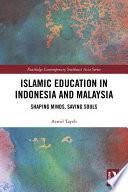| 011054 |
Tersedia di Library of UI BBC
|
| 011053 |
Tersedia di Library of UI BBC
|
| 011052 |
Tersedia di Library of UI BBC
|
| 011051 |
Tersedia di Library of UI BBC
|
| 011050 |
Tersedia di Library of UI BBC
|
| 011049 |
Tersedia di Library of UI BBC
|
| 011048 |
Tersedia di Library of UI BBC
|
| 011047 |
Tersedia di Library of UI BBC
|
| 011046 |
Tersedia di Library of UI BBC
|
| 011045 |
Tersedia di Library of UI BBC
|
| 011044 |
Tersedia di Library of UI BBC
|
| 011043 |
Tersedia di Library of UI BBC
|
| 011042 |
Tersedia di Library of UI BBC
|
| 011041 |
Tersedia di Library of UI BBC
|
| 011040 |
Tersedia di Library of UI BBC
|
| 011039 |
Tersedia di Library of UI BBC
|
| 011038 |
Tersedia di Library of UI BBC
|
| 011037 |
Tersedia di Library of UI BBC
|
| 011036 |
Tersedia di Library of UI BBC
|
| 011035 |
Tersedia di Library of UI BBC
|
| 011034 |
Tersedia di Library of UI BBC
|
| 011033 |
Tersedia di Library of UI BBC
|
| 011032 |
Tersedia di Library of UI BBC
|










